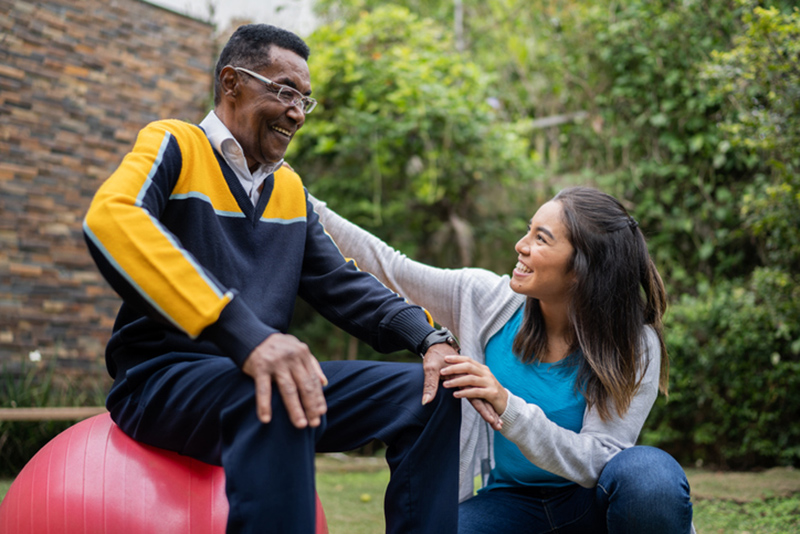
The supportive nature of home care services can help promote healing after a stroke.
Having a stroke is a frightening, unexpected experience. The effects can range from minor to life-changing, but one thing is clear: follow-up care is required. Thankfully, a lot of this care can be provided at home. If you’re caring for someone you love post-stroke, below are some of the ways you can help support healing after a stroke.
How Can I Support Healing at Home After a Stroke?
An important initial step is talking with the person’s medical team. to Learn as much as you can about what could have triggered the stroke, what the likely outcome is, and what they recommend with regards to a treatment and rehabilitation plan. It is also wise to request information and resources about strokes from the doctor. Education will be integral in your ability to provide the most effective care.
In addition, our home care experts share this advice:
- Begin a diary. A plain notebook or electronic document is all you will need. Begin with a baseline entry regarding the person’s physical and emotional condition, any medications being taken, eating and sleeping patterns, etc. It is not unusual for new stroke symptoms to arise months after a stroke, and any changes should be brought to the physician’s attention as soon as possible.
- Provide encouragement. Following the doctor’s advised lifestyle changes is not always easy. It is likely there will be a rehab exercise plan to follow, as regular physical activity is an effective tool for recovery for the brain and the body. Encourage the person to take part in these activities precisely as instructed. Joining in to work out with the person is often an effective way to ensure compliance with doctor’s orders.
- Try to avoid taking over. You might be inclined to want to do as much as possible for the person, to allow them to rest and not overexert themselves. However, it is important for the individual to accomplish as much on their own as possible in order to maximize recovery. Step in when absolutely required with just enough assistance in order for them to complete a challenging task.
- Show patience. The healing process post-stroke can take quite a bit of time, and there will likely be a number of challenges along the way. The person could also experience pseudobulbar affect, which causes abrupt bouts of crying or laughing for no obvious reason. They may also experience anxiety and fear of another stroke occurring, grief, or depression. These types of emotional changes can be distressing for both of you, but treatment solutions are available to help.
- Care for yourself. Caregiving for someone you love following a stroke can be physically and emotionally draining. Be mindful to establish appropriate boundaries to avoid caregiver stress and burnout. Enlist the assistance of other family members, friends, or a skilled caregiver to allow you time to step away to take care of your own health and wellbeing.
The Crucial Role of Home Care Post-Stroke
An in-home caregiver should be an essential part of someone’s recovery following a stroke. A few of the numerous ways a home care provider like Live Free Home Health Care can help include:
- Providing fall prevention as well as other home modification suggestions for improved safety and independence
- Offering transport and accompaniment to medical appointments and procedures
- Running errands, such as picking up groceries and prescriptions
- Preparing healthy meals according to any dietary restrictions
- Serving as a friendly companion for conversations, help with engaging in exercise programs, playing fun and mind-stimulating games, etc.
- Assisting with personal hygiene as needed
- Plus much more
Contact us Live Free Home Health Care, one of the top-rated senior care companies in Concord, NH and the nearby areas at 603-217-0149. Find out how home care helps following a stroke and how our fully trained and experienced caregivers can ensure an easier recovery for someone you love.
